By Yvonne Lee, Lehigh University
Working with graduate writers is currently a topic being discussed in the literature, and much of what is being discussed is the uniqueness and liminality of the situation in which graduate student writers find themselves (Jewell & Cheatle, 2021; Lawrence & Zawacki, 2018; Russell-Pinson & Jafarian, 2020; Simpson et al., 2016). To many, graduate writers should already be experts in writing in their fields. To others, they are novice insiders who are still learning the practices and expectations of their fields.
As we learn more about the experiences, needs, and resources for graduate student writers, more and more centers are going farther than simply adding services for graduate student writers to their undergraduate offerings; they are opening centers devoted entirely to graduate student writers.
In this piece, I would like to tell the story of the beginnings of a graduate student-focused writing center at a small, private university in the eastern United States. It is my hope that such a narrative can be useful in encouraging others to walk a similar path, or at least to gain a new perspective on what it takes to build writing support initiatives for graduate student writers.
The Graduate Writers’ Studio (GWS) at Lehigh University had its beginnings when a 2018 university-wide initiative officially determined that increased academic support was needed for the graduate student community. A brand-new position, Deputy Provost for Graduate Education, was created and was charged with overseeing the Graduate Life program that had been working with graduate students since the early 2000s.
In July 2020, the GWS officially launched as an online presence and part of the Graduate Life Office (GLO).
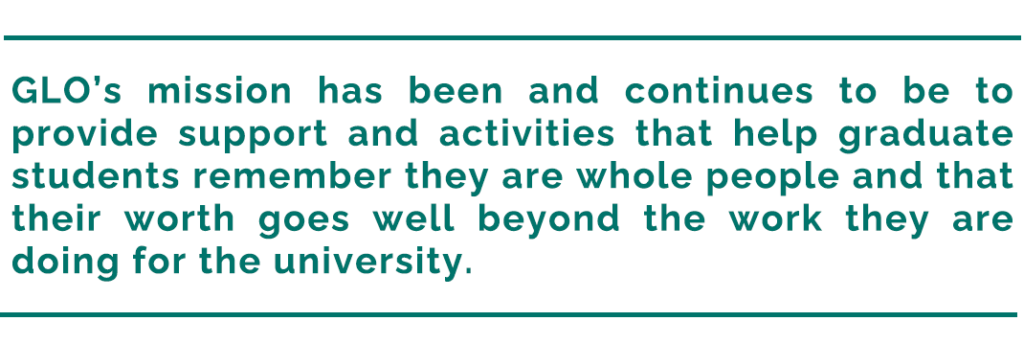
Historically, GLO has run on a shoestring budget and the determination and love of the few people who work there. GLO’s mission has been and continues to be to provide support and activities that help graduate students remember they are whole people and that their worth goes well beyond the work they are doing for the university.
One of our first hurdles was the fact that though GLO had been provided with funding to create the position of Assistant Director of Graduate Writing Support, that position was not provided with additional funding to build and maintain programming. Luckily (and unluckily), GLO’s regular programming was not being offered just then because much of the world was in lock-down due to a global pandemic. Thus, I was able to use a small amount of that budget to use as a stipend for two current graduate students to train and work as Graduate Writing Consultants.
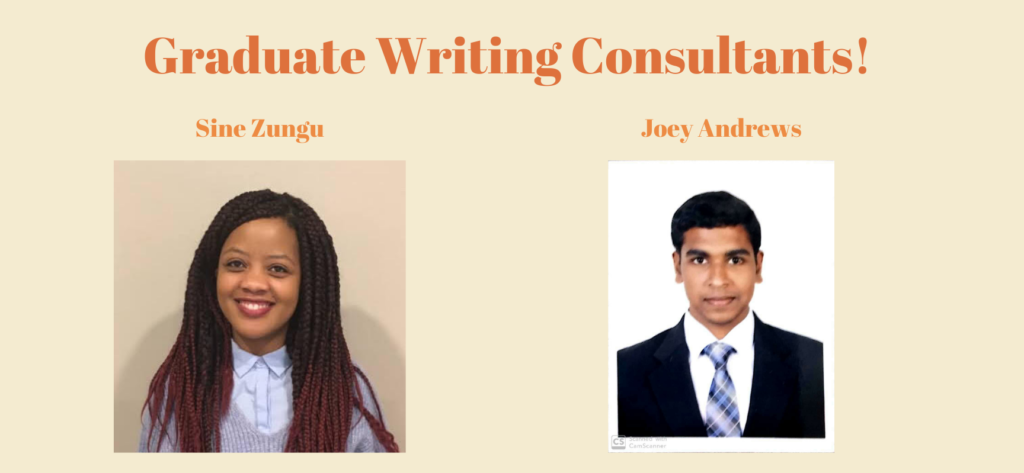
Varun Joseph Andrews (Joey), who was a master’s student in Health Sciences Engineering and Sinenhlanhla Zungu (Sine), who was a Psychology doctoral student have both graduated and left the university. However, they were instrumental in the building of the Graduate Writers’ Studio. They were involved in the development and deployment of our services, and they co-crafted our Mission Statement and our Diversity, Inclusion, and Equity Statement.
As was noted by Salisbury University graduate student, Faith Thompson, during her presentation “Linguistic Justice Statements, Anti-racism, and Supporting the Communication Needs of Diverse Graduate Student Writers” at the 2023 Summer Institute of the Consortium on Graduate Communication, while most graduate writing centers have mission statements, Lehigh University’s GWS was one of the few to have developed a Diversity, Inclusion, and Equity statement. The statement written by Joey and Sine can be found on the landing page of the Graduate Writers’ Studio.
Joey, Sine, and I built programming that we felt—and still feel today—address the needs of graduate students at Lehigh University as we understood them.

Unsurprisingly, one of our first endeavors was to build a one-to-one consultation model where graduate student writers can work individually with a writing consultant, discussing anything from formatting to idea development and argument clarity. These consultations are offered in three mediums—asynchronous, synchronous, and in-person—though we did need to rename asynchronous to “online drop off” and synchronous to “video chat” early on because we noticed that students were confused by the terms “synchronous” and “asynchronous.” Likely, this was due to the fact that prior to the pandemic, our university offered very few online class options outside of the Distance Education Program.
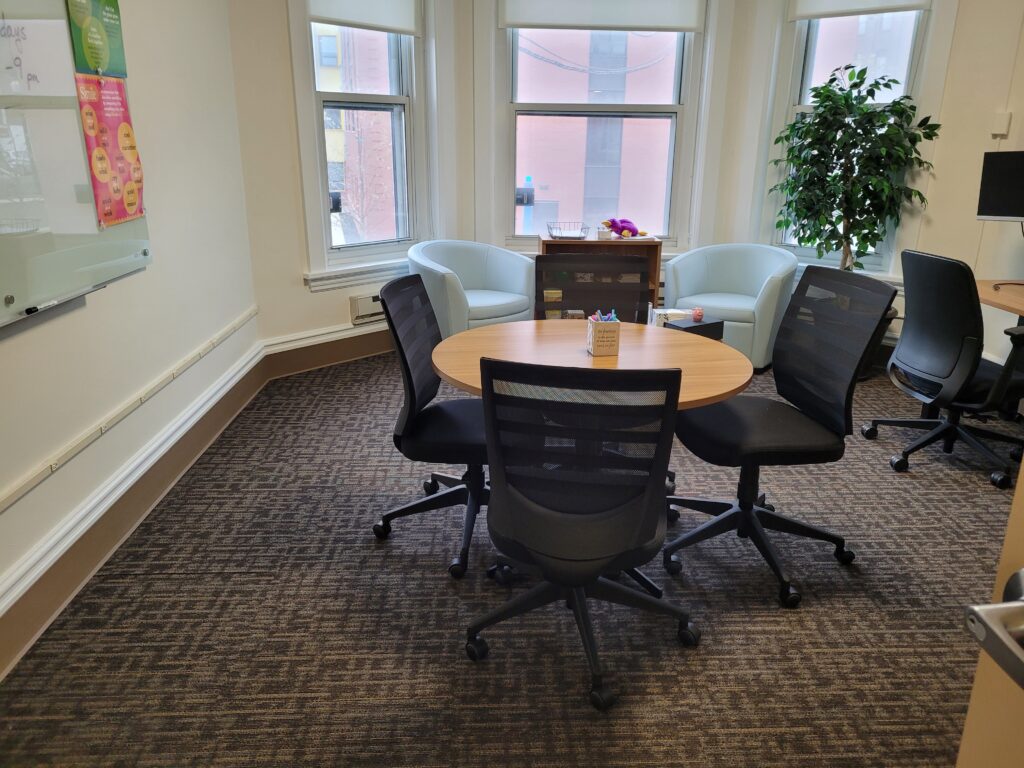
Because graduate students, particularly doctoral students, are often working on extended, high-stakes writing projects—such as articles for publication or dissertations—graduate student writers could schedule writing consultations that could last anywhere from 30 minutes to two hours. We decided to break the typical time ceiling of one hour because we felt that providing writers with an opportunity to have more in-depth conversations about their topics, ideas, and arguments would help as they moved further into their identities as experts in their fields.
In addition to one-on-one writing consultations, we wanted to address two common obstacles that graduate student writers often face—feeling isolated from other graduate students and steady engagement with their writing. Thus, we offer 2–3 weekly, hybrid, drop-in, accountability groups that we call Just Writes. We meet via online conferencing software at a designated day and time, and we make the link to enter that online group easily accessible on our website, using the security feature that participants must use their Lehigh University credentials to enter the virtual space.
At the start of each Just Write, each participant identifies what their specific goal for the session is, sharing that verbally and in writing on a shared Google Sheet. We then each spend the next 90 minutes working individually toward our self-determined goal. 10–15 minutes before the end of the Just Write, we all share verbally and in writing what it was we were able to accomplish during that session. What I have found is that tracking goals and accomplishments in this way really helps graduate student writers identify and set realistic expectations for themselves, which can go a long way in helping keep them on track with their writing projects that do not have daily or weekly oversight by professors.
As a way to extend the work being done during the short, weekly Just Write sessions, we offer one weekend-long Writing Retreat each semester, including during the summer session. These Writing Retreats are held both virtually and in an on-campus venue that is typically not available to graduate students and is used by the community for special occasions. It is a beautiful banquet hall that sits at the top of the mountain on which our campus is built. Students find the views from this venue inspiring while they work on their writing projects.
In addition to the verbal and written sharing that we do, the GWS invites entities from across the university to offer 30–45-minute workshops on specific topics that fit that person’s field of expertise and that can benefit the graduate students in some way. For example, we have had an instructor who teaches the introductory ESL courses for undergraduates provide a workshop for international graduate students for whom English is not their first language. We have also had counselors from the Counseling Center do an activity that helps writers to incorporate mindfulness into their writing practices.
The impact the GWS has had on the graduate student experience at Lehigh University has been so fulfilling to see. After every event, I send an email to each participant. That email thanks them for participating and requests that they complete a brief evaluation form, which I then use to improve the offerings by better meeting their needs.
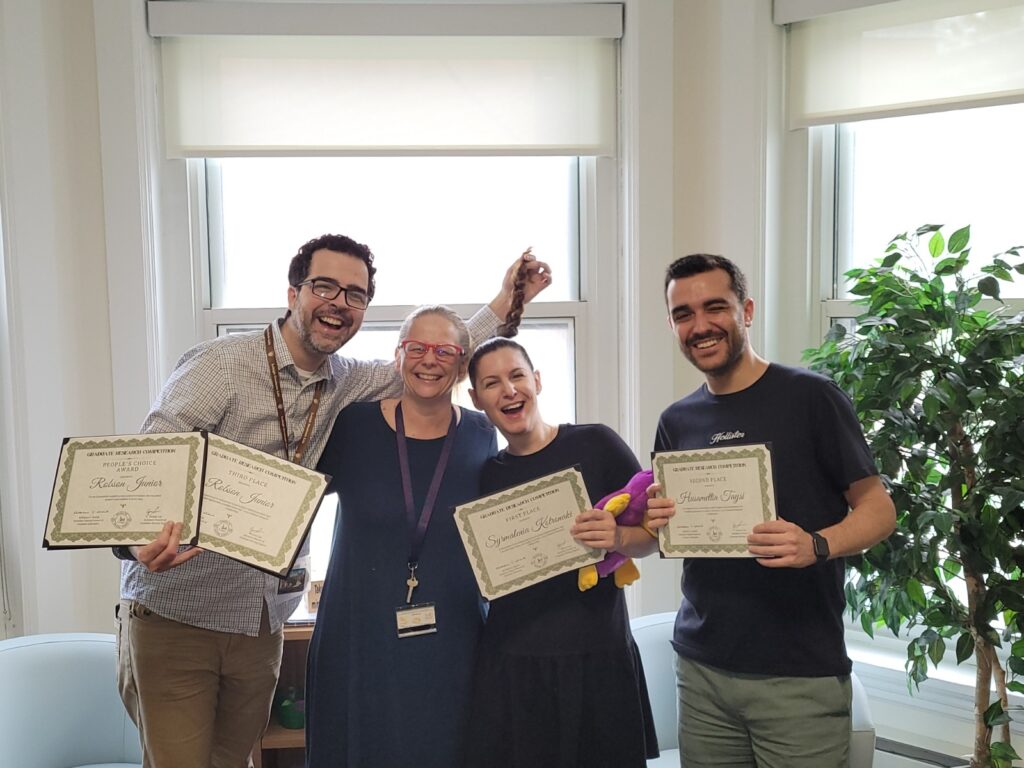
Here is just a sampling of what our graduate students have said:
“Had a great time just writing and getting my thoughts out, but knowing that someone else was there to help if I got stuck or had a question. Yvonne was a ton of fun to talk to, also—just a few minutes in the beginning and the end to share thoughts but she’s great.”
“These workshops were so helpful. Each time, I was able to get a lot of work done and left feeling accomplished and less stressed for having finished something that I had not had time or energy to focus on previously.”
“I LOVE the write-ins. I get a lot of work done, have nice conversations with other writers during breaks, and feel very supported in work that can often feel isolating.”
“I really enjoyed it! It gave me the time and resources I need to dedicate to preparing for my Qualifying Exam in a comfortable, relaxed, and supportive environment.”
“I found the experience very pleasant and very helpful. I only wish I’d been going sooner!”

After having spent three years working with students and other campus stakeholders to build these foundational services to support graduate student writers, I have been offered the bittersweet opportunity to take on a new role at the university. Thus, a new leader will be stepping in to take the Graduate Writers’ Studio to the next level.
There is value in having a writing space dedicated solely to the needs and experiences of graduate student writers. Particularly because, as is seen with the above-mentioned concerns of feelings of isolation and needing an extra push to remain engaged with extended writing projects, those needs often fall outside of the technical craft of writing itself and within the need for more emotional support via building a sense of community.
The featured image for this post is by Ryan Hulvat, Lehigh University.
Works Cited
Jewell, Megan Swihart, and Joseph Cheatle, editors. Redefining Roles: The Professional, Faculty, and Graduate Consultant’s Guide to Writing Centers. Utah State University Press, 2021.
Lawrence, Susan, and Terry Myers Zawacki, editors. Re/Writing the Center: Approaches to Supporting Graduate Students in the Writing Center. University Press of Colorado, 2018.
Russell-Pinson, Lisa, and Jafar Haadi Jafarian. “From Avoidance to Action: Helping Dissertation Writers Manage Procrastination.” Learning from the Lived Experiences of Graduate Student Writers, edited by Shannon Madden et al., Utah State University Press, Logan, UT, 2020, pp. 174–197.
Simpson, Steve. “New Frontiers in Graduate Writing Support and Program Design.” Supporting Graduate Student Writers: Research, Curriculum, & Program Design, edited by Nigel A. Caplan et al., University of Michigan Press, Ann Arbor, MI, 2016, pp. 1–20.
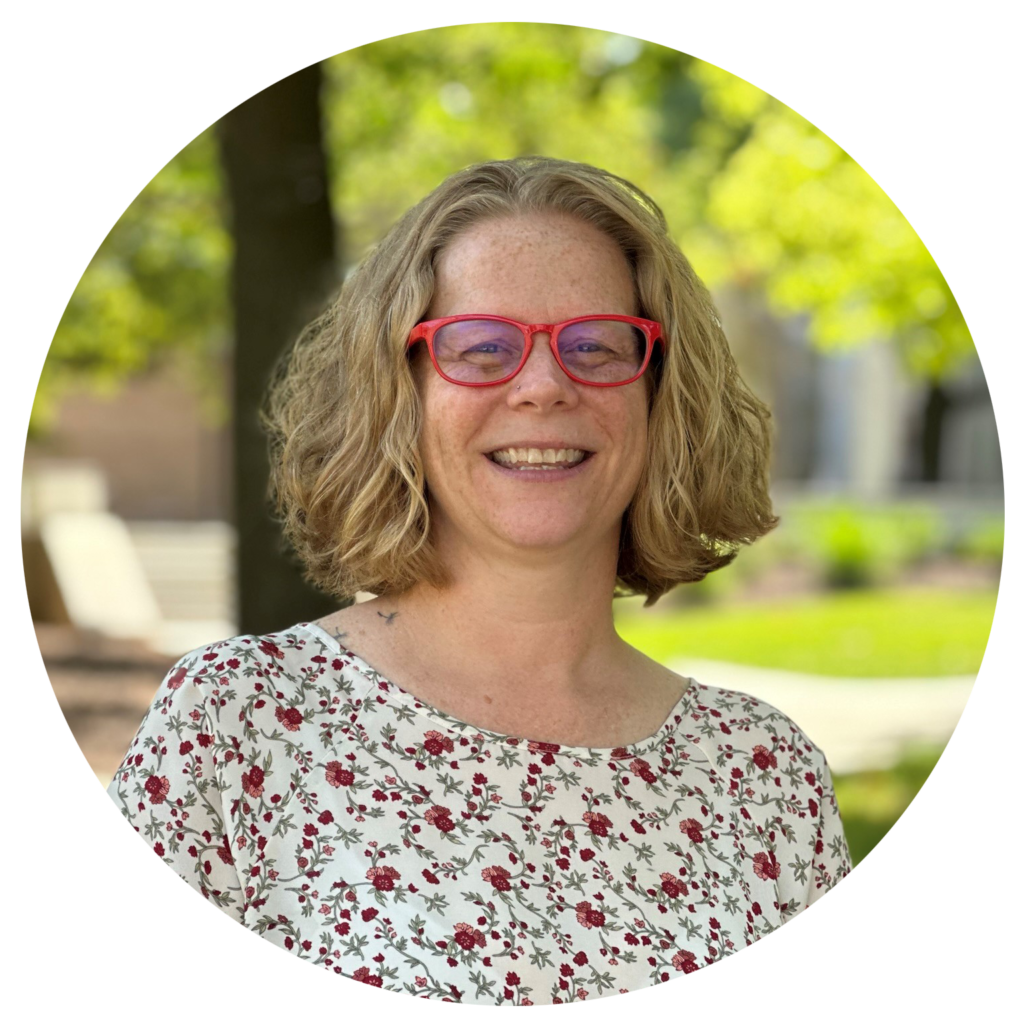
Dr. Yvonne Lee earned her PhD in Literacy, Rhetoric, and Social Practice from Kent State University. She is the inaugural director of Lehigh University’s Graduate Writers’ Studio. Her previous and upcoming work can be found in Praxis: A Writing Center Journal and WLN: A Journal of Writing Center Scholarship.

